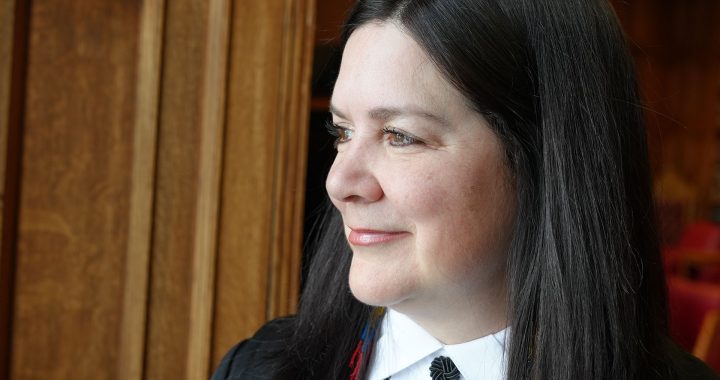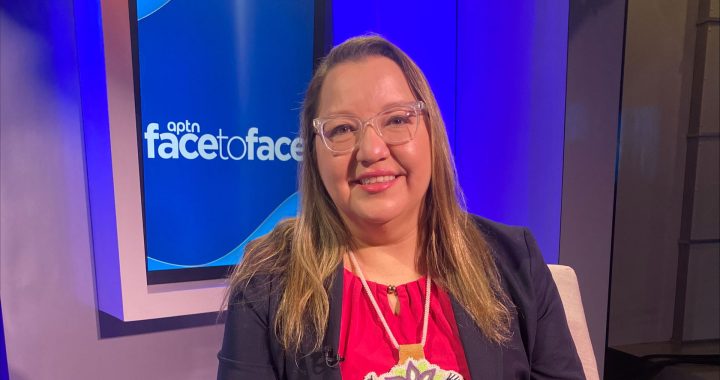Some have called Moon of the Crusted Snow the perfect book for the times we’re in.
The novel was released in 2018 to critical praise but it has seen a resurgence during the COVID-19 pandemic.
Now, writer and journalist, Waubgeshig Rice has been asked to pen a sequel to the post-apocalyptic story about a small, northern Anishinaabe community that goes dark as winter looms.
The idea for the novel came as a result of living through the blackout that hit parts of Ontario and the north eastern United States in 2003.
Rice reflected on how the Indigenous response to such a catastrophe would be a lot different than the non-Indigenous response.
“I think people from an Indigenous background know what having a world end is like. And they’ve sort of picked up the pieces and have created new communities and have modified cultures at the same time in the face of these catastrophes and in the face of ongoing colonialism,” says Rice who was inspired to explore a story like that on his own.
“I think the story itself is about that moment of crisis and it kind of examines what that initial reaction can be in a community and how people would respond to having the world, I guess essentially hang by a thread in their perspective.”
Rice says the renewed interest in the novel is interesting to see.
“I don’t think there are too many parallels between what we’re going through now and the story, other than those moments of panic and moments of mystery,” says Rice.
“If anything I hope it prompts people to take a look at their current situations, at their communities, at the ways they get food, at the ways they organize and relate with people in their own communities and maybe find ways to hit the reset button and renew and find a positive path forward.”
Rice never planned on a follow up to the novel even though readers have been asking for one.
In late April, the sequel was announced.
The story will pick up more than a decade after the blackout as a small pocket of people from the community head south to see what’s left of the world and try to reclaim their original homeland on the Great Lakes.
When asked about whether Moon of the Crusted Snow could be adapted for the screen, Rice says he is hopeful.
“There are some things in the works that I can’t really disclose what’s happening because there is again initial discussions. But I’m hopeful we could see a limited series of the first part of the story,” says Rice. “I don’t know about the second part because it still has to come out. I didn’t write it thinking that it would be adapted to the screen but I am a very visual storyteller and it’s important for me to have some accurate reflections visually in my writing.
“If there are filmmakers who believe it can sit well on the screen then I am totally into that.”
Rice has announced he will be stepping away from journalism to work on the sequel, among other things.
Rice says it was a difficult decision.
He’s spent the better part of his journalism career at the CBC where he has worked on radio and in television for the past 14 years.
“I’ve been making a living off journalism for 18 years. It’s been a wonderful career,” says Rice.
Rice feels there has been great Improvements over the years in the ways Indigenous stories are told but says there still needs to be more Indigenous positions in newsrooms, especially in management.
“There were a lot of really trying times and I almost quit many, many times because I didn’t feel like I was part of a newsroom that valued these stories,” says the Anishinaabe writer. “This came up in almost every place that I worked. It was really a battle a lot of times to get some of these stories on the air and to convince my superiors these are people we need to talk to and these are voices that need to be heard.”
Rice says Indigenous journalists like Jim Compton and Bernelda Wheeler blazed the trail and likely faced much bigger issues than he did.
Still, Rice says representation remains an issue.
“Unfortunately, we just don’t have that critical mass of Indigenous journalists across the board yet which we really need to effectively educate the rest of Canada about the history of this land and what some of the current issues are. And I think that starts at the top,” he says. “I think we need more Indigenous people in management positions in the mainstream organizations.
“If that can’t trickle down then the journalism work itself is going to suffer. If you have young Indigenous journalists trying to pitch stories about what’s important in their communities and what Canadians should know about and their bosses don’t understand it and don’t take those pitches, then everybody loses.”
Rice’s final day of hosting CBC’s Up North was May 22.
It was a dream job for the writer and journalist who is originally from Wasauksing First Nation.
Rice hopes to have more time now to continue on the journey of reclaiming his language, with more than just his lunch break to work on it.













